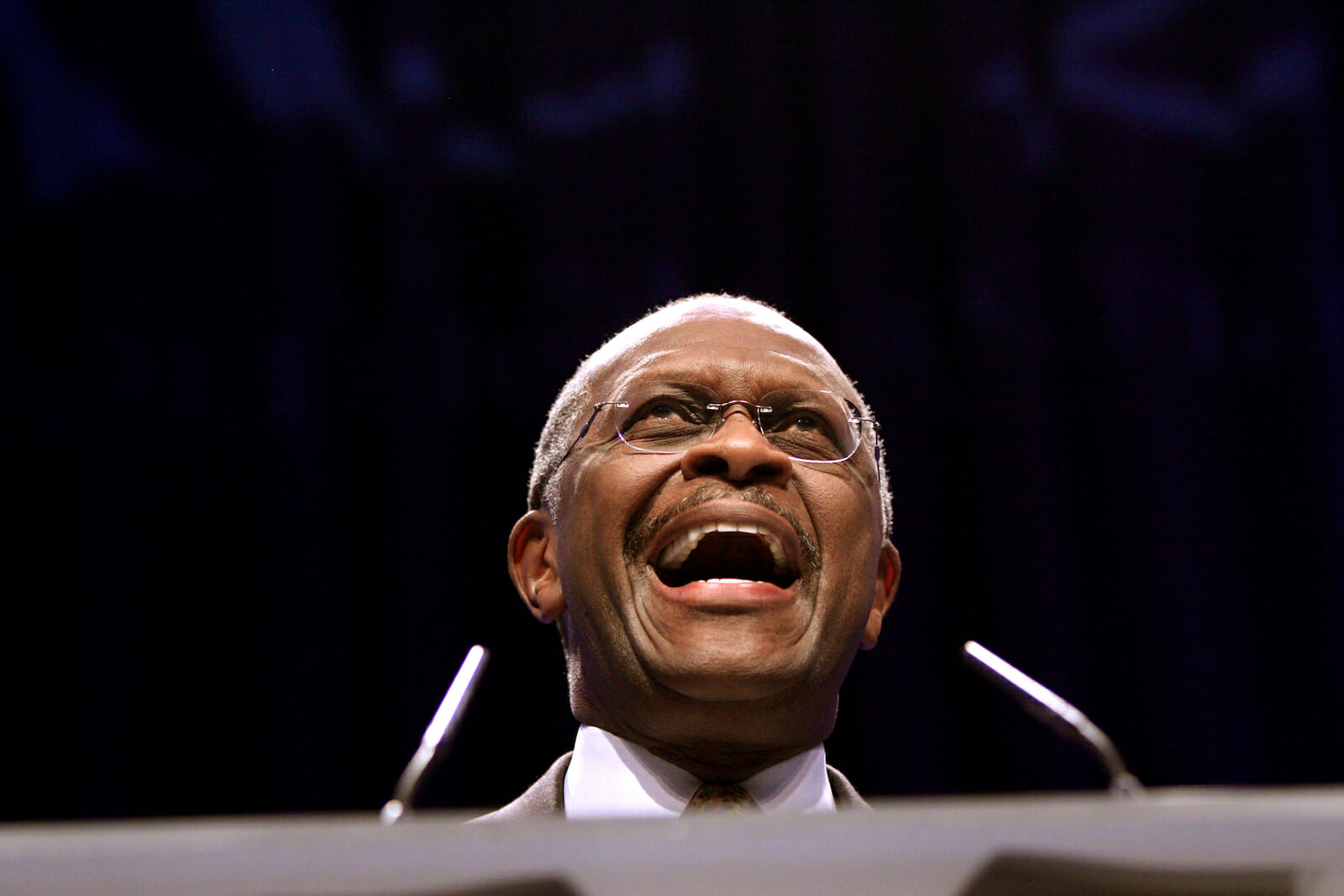
Politics
Is the GOP Retrograde or Reformist?
The Republican Party is in a state of disarray and needs to change. Mitt Romney’s presidential campaign, and the extreme positions from which he is now trying to distance himself, provides insights into this situation. It is not surprising that Governor Romney tacked hard to the right during the Republican primary and is now emphasizing a more moderate brand in his latest incarnation of himself. Nonetheless, I am concerned about a range of public policy issues: the deficit, a disastrously dysfunctional Congress and the rising cost of higher education. I am also worried that there is no overarching strategy that underpins American foreign policy today. Yet, as this election cycle painfully draws to a close, what bothers me the most is the current state of the Republican Party and its dismal prospects for the future.
During the next two years, the party leadership (and others) should think long and hard about the type of party they’d like to be and what that means given America’s irreversible demographic trends (towards a less white, more ethnically diverse electorate) and the way that peoples’ positions on social issues are shifting. The Democrats have their far-left crazies for sure, but I am worried that Republicans may be cornering the market on insanity.
What Todd Akin said was deplorable and he was rightly rejected by much of the party’s leadership. Nonetheless, the Republican Party’s platform for this year is not exactly a paean to moderation or tolerance.
Though the GOP makes some decent points about the economy and simplifying the tax code, the document espouses some worrisome tenets—especially on the social policy front. According to the platform, abortion, even in cases of rape or incest, is not permissible. Same-sex couples should not be recognized legally. And federal money should not go towards stem cell research.
On immigration, evidently, Republicans now have virtually no tolerance for undocumented workers—in spite of the fact that the Hispanic population is growing faster than any other ethnic group. It is true that Hispanics are not a “monolithic” group, but draconian immigration policies will undoubtedly alienate the vast majority of this increasingly important segment of voters. Besides, this is not a constructive solution to a pressing policy problem that will only get worse if more pragmatic action is not taken.
Even though the GOP’s platform shouldn’t necessarily be viewed as a policy document ready for immediate implementation, a GOP that is against same-sex marriage, women’s reproductive rights and any discussion of amnesty for immigrants might have seemed appealing to many…several decades ago. It has even been suggested that this is “the most conservative platform in modern history.”
The US Presidential Election and American Foreign Policy
On domestic policy, Governor Romney has been, at best, sketchy. On foreign policy and national security matters, his behavior has been closer to schizophrenic than cloudy. With Election Day right around the corner, I’m still not sure what a Romney foreign policy looks like; I’m not sure that Governor Romney knows either.
Perhaps Romney’s most consistent foreign policy position has been his insistence on branding China a “currency manipulator” as soon as he becomes president. China bashing during election season is nothing new, but such a clear (and misguided) idea is revealing. It makes Romney look like a dilettante and shows that he is out of his depth when it comes to foreign affairs. Aside from the numerous mistakes during his campaign, Romney still thinks his veneration of the United States as “exceptional” and “great” constitutes a worldview. It does not.
While President Obama seems to be somewhat uncomfortable with the idea of American leadership, Governor Romney is entirely too comfortable, often speaking as if the Berlin Wall came down yesterday. He continues to lack new ideas and the third presidential debate didn’t inspire much confidence. But a foreign policy debate at this juncture is somewhat academic; this is a domestic policy election where economic matters are paramount. That’s exactly why I’m so puzzled.
On Movements: The Effects of the Tea Party and Occupy Wall Street
Some have argued that the Occupy movement was important. People vented legitimate frustrations and the movement might have the potential to balance the other side of the coin, as a sort of leftist Tea Party. This argument is unconvincing; the Occupy movement no longer looks like a strong source of political mobilization.
The Occupy movement lacked coherence and now, well over a year since its inception, “the movement cannot claim any new policy, law or regulation as its own.” The movement garnered media attention, for sure. However, it has yet to find a politically influential voice, which is problematic when it comes to changing public policies. On the other hand, the Tea Party, having already wielded serious influence over elections and policy, may be here to stay. Since 2009, the Tea Party has had a significant impact on electoral politics and substantive public policy issues, particularly during the debt-ceiling crisis. It’s like comparing the impact of a snowflake to that of a blizzard.
For example, in three Senate races in 2010, Tea Party candidates directly contributed to the election of Democrats; members of the Occupy movement cannot boast of a similar accomplishment, or anything even close to it. Furthermore, Governor Romney clearly pandered to the Tea Party in order to win the nomination. This is not a promising sign because it shows that the most intolerant wing of the Republican Party wields a disproportionate amount of influence.
The Debt Ceiling Crisis
There’s nothing wrong with extolling the virtues of fiscal responsibility. But passing legislation invariably involves compromise. Clearly, members of both parties, including President Obama, are to blame for the way the debt ceiling fiasco unfolded. But for Republicans to have been unwilling to have revenue increases on the table—just to have a discussion about it—is ridiculous. Tea Party activists seem to take pride in their unwillingness to compromise, almost as if they equate stubbornness and intransigence with character and dignity. For a country whose political system is deadlocked because of the dominance of extreme factions in both parties, this is not an encouraging sign.
Demographic Trends and Domestic Policy
In the coming decades the US will be far less white and far more ethnically and culturally diverse. While such trends favor Democrats, Republicans can and should do more to court these voters. Romney, by backing tough immigration laws (like the one in Arizona), talking about “self-deportation” and opposing the DREAM act, isn’t doing himself or the Republican Party any favors.
According to Michael Oreskes, “Put simply, the groups that support President Barack Obama most strongly — blacks, Hispanics, young people, unmarried women — have been growing as a share of the electorate. Those who support Mitt Romney the most — white working men, in particular — have not.” This is not an encouraging trend either, but based on the way Republican policies are evolving, it doesn’t appear to be something that Republicans have given a lot of thought to.
Conclusion
As I and many others have already noted, Barack Obama is a very vulnerable candidate and doesn’t deserve four more years in the White House. Republicans should be stunned that this is even a close race. The fact that Romney ran again for the Presidency is not surprising. What’s surprising is that he was “the best” the Republicans had to offer.
During the Republican primary, Governor Romney did what he had to do to win, but he’s still feeling the effects of those choices. As one journalist concisely notes, “The persistent problem for Mr. Romney – and one that he could well overcome – is that he has been forced to fight his presidential campaign on two fronts over the past few weeks: pushing back against an aggressive Mr. Obama and trying not to get tripped up by the most conservative elements of his own party and the positions he once endorsed. Mr. Romney has been forced repeatedly to walk a tight line between keeping conservatives happy and attracting more moderate voters.”
The numbers don’t lie. The US electorate will change significantly in the decades to come. Consequently, the GOP needs serious makeover. Given America’s two-party system, if one party is generally regarded as anti-gay, anti-immigration and embraces a platter of social policies that are, at best anachronistic, and at worst unfair and illogical, that should translate into defeat in future elections.
There are many talented Republicans who could lead such a makeover—and I am not talking about Marco Rubio. Jeb Bush is the first person who comes to mind. He is well-versed on many key policy issues and has been arguing for thoughtful immigration reform for years. He also has name recognition and is well-connected. But changing the party has to be about more than charisma and individual people. It has to be about the policies. Though President Barack Obama doesn’t deserve another term, he has run a better, smarter (albeit more negative) campaign than Governor Romney. Were Governor Romney to win, the makeover the Republican Party so desperately needs would probably be put on hold, especially if Republicans were to also retake the Senate.
In that sense, a Romney defeat would have a silver lining to it. Romney’s failure to capture the presidency could provide the necessary impetus for contemplation, debate and subsequent changes within the Republican Party. Democrats do not have a monopoly on progressive ideas or rationality. It may take some time for Republicans to come back to the center, but it’s a process that should begin now.
